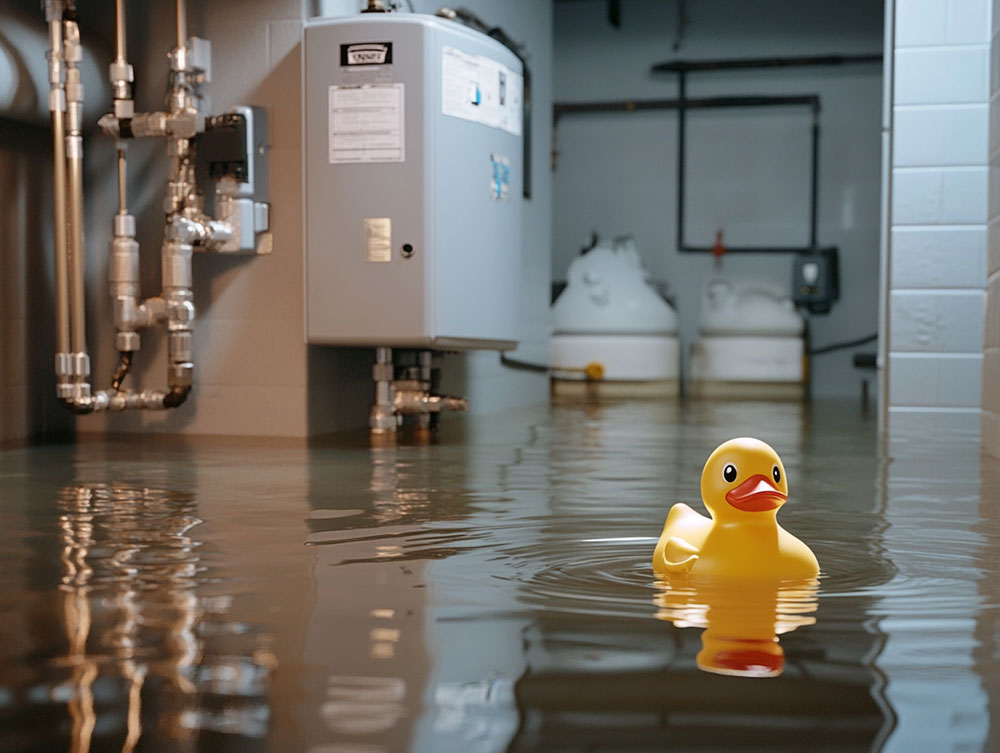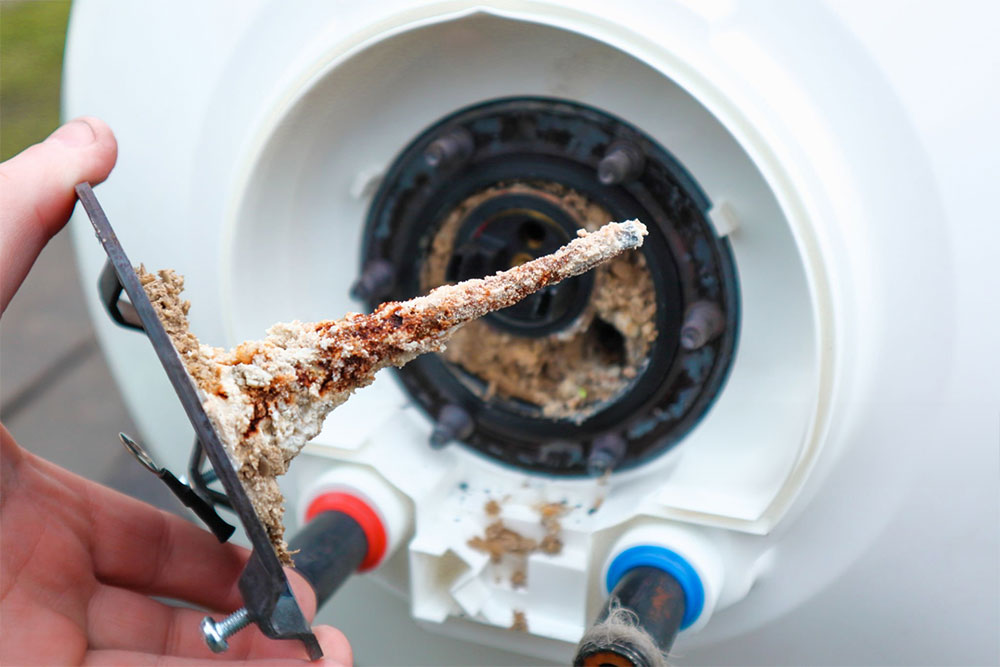From a warm shower after coming in from the cold, to washing laundry and dishes, hot water is a luxury we often take for granted. Recognizing the signs of a failing hot water heater can prevent you from dealing with the stress of turning on your water to find it ice cold when you need it most!
Common signs a hot water heater may be on its last leg include:
-
- No Hot Water (or Lukewarm Water)
- An obvious sign is that your water is not heating up properly. This could be due to a faulty thermostat, a heating element malfunctioning in electric heaters, a pilot light issue in gas heaters, or a sign of more serious internal damage.
- Water Heater Leaks
- If you notice a leak, whether it’s from the tank itself, the connections, or the pressure release valve, make sure to act right away! Even small leaks can escalate into a flood, causing pricey damage to your home.

If your basement looks more like an aquarium it’s time to call a professional.
- If you notice a leak, whether it’s from the tank itself, the connections, or the pressure release valve, make sure to act right away! Even small leaks can escalate into a flood, causing pricey damage to your home.
- No Hot Water (or Lukewarm Water)
-
- Strange Noises
- A water heater that is functioning properly will not make much noise. Banging, rumbling, or whistling noises can indicate the buildup of sediment in the tank, which can cause the eventual failure of the tank.
- Rusty or Discolored Water
- Changes in the color of your water could be due to corrosion inside the tank. If left, it will continue to deteriorate and may lead to a leak.
- Unpleasant Odor
- If you smell something resembling a rotten egg, this could indicate a very serious gas leak. Take immediate action by turning off the gas supply, contacting a professional, and evacuating the area until it is deemed safe. If the smell is metallic or musty, this could signify bacteria growth or other internal tank issues.
- Decreased Water Pressure
-
- Sediment buildup in your water heater is a possible explanation for lessened water pressure.

- Sediment buildup in your water heater is a possible explanation for lessened water pressure.
-
- Strange Noises
- Age
- The average lifespan of a water heater is around 8-12 years. If your unit is getting old, it’s a good idea to replace it before it fails altogether.
You’ve identified the signs, what now?
- Safety First
- If you suspect a gas leak, do not try to resolve the issue yourself. Turn off the gas supply to the water heater and contact your gas company or a qualified technician.
- Assess the Situation
- Gather more information on the problem, such as the extent of the leak or the approximate temperature of the water. This will help a professional in fixing the issue.
- Call a Professional
- It’s best to call a professional with expertise in repairing water heaters to address your problem. Taking matters into your own hands can be dangerous and may cause your warranty to be voided.
- Consider a New Water Heater
- If your water heater is old or the damage is too extensive, it may be best to get a new water heater. With a new model, you can rest easy knowing it will provide reliable hot water for years to come, as well as save money on your utility bills. Speak with a professional about the best options for you.
- Maintenance is Key
- Schedule regular maintenance on your water heater to make sure no problems take you by surprise!
By noticing the signs of water heater failure early and acting, you can be sure your hot water will always be there when you need it! If you’re looking for a professional to assess your water heater, TMS is here to help! Whether it’s routine maintenance or getting your tank up and running again, you will be glad you contacted us (860-342-8867)!



